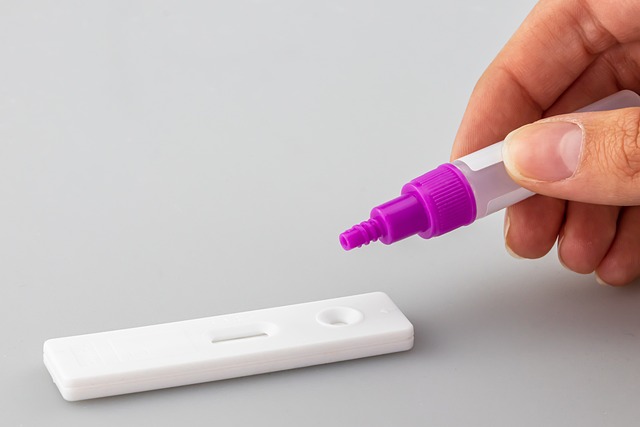Everything to Know About Sperm Donation - Eligibility, Prices, Clinics and More
Sperm donation is a process where men voluntarily provide their sperm to help individuals or couples struggling with infertility. This generous act allows many people to fulfill their dreams of starting a family. Whether you're considering becoming a donor or exploring options for conception, understanding the ins and outs of sperm donation is crucial. Let's dive into the key aspects of this process, including eligibility requirements, compensation, and how it benefits society.

What are the eligibility requirements for sperm donation?
Sperm donation eligibility criteria are designed to ensure the health and safety of both donors and recipients. While specific requirements may vary slightly between clinics, some common criteria include:
-
Age: Most clinics accept donors between 18 and 39 years old.
-
Health: Donors must be in good overall physical and mental health.
-
Family medical history: A clean family medical history without genetic disorders is typically required.
-
Education: Many clinics prefer donors with a college degree or higher education.
-
Physical characteristics: Some clinics may have specific height or weight requirements.
-
Lifestyle: Non-smokers with a healthy lifestyle are generally preferred.
-
Commitment: Donors must be willing to undergo regular health screenings and provide samples over an extended period.
How much are sperm donors typically paid?
The amount paid to donate sperm varies depending on the clinic and location. However, most reputable sperm banks in the United States offer compensation to their donors. Here’s a general overview of what you can expect:
-
Per donation: $50 to $150
-
Monthly earnings: $500 to $1,500 (based on 2-3 donations per week)
-
Completion bonuses: Some clinics offer additional bonuses for completing a donation cycle
It’s important to note that compensation is typically provided only after a donor has been fully screened and approved, and their samples have been deemed suitable for use.
| Sperm Bank | Base Compensation per Donation | Potential Monthly Earnings |
|---|---|---|
| California Cryobank | $100 - $125 | $1,000 - $1,500 |
| Fairfax Cryobank | $75 - $100 | $900 - $1,200 |
| Seattle Sperm Bank | $70 - $100 | $840 - $1,200 |
| Xytex Cryo International | $50 - $75 | $600 - $900 |
Prices, rates, or cost estimates mentioned in this article are based on the latest available information but may change over time. Independent research is advised before making financial decisions.
Where can I find reputable sperm donation clinics?
Finding a reputable sperm donation clinic is crucial for both donors and recipients. Here are some well-known sperm donation clinics in the United States:
-
California Cryobank: With locations in Los Angeles, Palo Alto, and New York City, this clinic is one of the largest in the country.
-
Fairfax Cryobank: Operating in Fairfax, VA, Philadelphia, PA, and Austin, TX, Fairfax Cryobank is known for its rigorous screening process.
-
Seattle Sperm Bank: Located in Seattle, WA, this clinic offers nationwide shipping and a wide range of donor options.
-
Xytex Cryo International: Based in Augusta, GA, Xytex has been in operation for over 40 years and ships internationally.
-
Cryos International: With a U.S. location in Orlando, FL, Cryos is one of the world’s largest sperm banks.
When choosing a clinic, consider factors such as reputation, screening processes, and success rates. It’s also advisable to check if the clinic is licensed and accredited by relevant authorities.
How does sperm donation help society?
Sperm donation plays a significant role in helping individuals and couples struggling with infertility to start families. Here are some ways it benefits society:
-
Assisting infertile couples: Many couples face fertility issues that can be overcome with donor sperm.
-
Helping single women and LGBTQ+ couples: Sperm donation allows single women and same-sex female couples to have children.
-
Advancing medical research: Donated sperm can be used in research to study genetic disorders and improve fertility treatments.
-
Preserving genetic diversity: Sperm banks carefully manage donor selection to maintain genetic diversity in their samples.
-
Supporting genetic testing: Donated sperm helps in the development and improvement of genetic screening techniques.
What is the process of sperm donation like?
The sperm donation process typically involves several steps:
-
Initial screening: Potential donors complete a detailed questionnaire about their medical history and lifestyle.
-
Physical examination: Donors undergo a thorough health check, including tests for infectious diseases and genetic disorders.
-
Semen analysis: The quality and quantity of sperm are evaluated to ensure they meet the clinic’s standards.
-
Psychological evaluation: Some clinics require donors to undergo a psychological assessment.
-
Donation: Once approved, donors visit the clinic regularly (usually 1-3 times per week) to provide samples.
-
Quarantine and retesting: Samples are frozen and quarantined for several months before being retested for infectious diseases.
-
Release: If all tests are clear, the sperm is made available for use by recipients.
What legal and ethical considerations should I be aware of?
Sperm donation involves various legal and ethical considerations:
-
Anonymity: Some clinics offer anonymous donation, while others have open-identity programs where donors can be contacted by offspring in the future.
-
Parental rights: In most cases, sperm donors relinquish all parental rights and responsibilities to any resulting children.
-
Limits on offspring: Many clinics limit the number of families that can use a single donor’s sperm to reduce the risk of unintended genetic relationships.
-
Informed consent: Donors must fully understand and agree to the terms of donation, including potential future contact with offspring.
-
Genetic testing: As genetic testing becomes more widespread, donors should be aware that their anonymity may not be guaranteed in the long term.
-
Emotional implications: Both donors and recipients should consider the potential emotional impact of sperm donation on themselves and any resulting children.
In conclusion, sperm donation is a complex but invaluable process that helps many individuals and couples achieve their dreams of parenthood. By understanding the eligibility requirements, compensation, and societal benefits, potential donors and recipients can make informed decisions about their involvement in this life-changing process.
This article is for informational purposes only and should not be considered medical advice. Please consult a qualified healthcare professional for personalized guidance and treatment.




